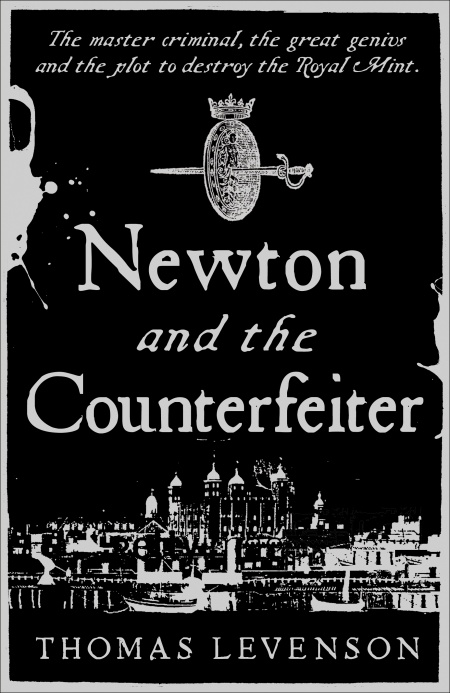In today’s iteration of this sporadic series, check out some stuff by MacGregor Campbell, the man who is his own clan feud, and the pride of both the MIT Graduate Program in Science Writing and The New Scientist‘s SF bureau, where he has interned this summer.
MacGregor, who had to suffer through the experience of being my advisee, is one of those polymathic students that can make their teachers feel both delighted and old. He came to us as a musician and video artist, with a background in math and the teaching of that subject to high school students. For a feel for his range and the flexibility of his mind, check out his blog, Main Sequence (a little slow to update just now, in the throes of his internship).
You’ll see there links to much of the work he’s done for the NS, along with his own sparks, but I’d like to draw attention to a couple of pieces.
First a little background. Y’all may have noticed that the media landscape has changed a bit over the last few years. One of those shifts has been to expect, increasingly as a matter of course, that prose on its own is not enough; the presentation of stories on the web is both enhanced by the incorporation of video, audio, and interactive elements, and it is transformed, at least in part, into work explicitly intended to entertain as well as inform.
More later, I’d guess, on the tension implied in that last statement, but here, just the practical problem for would-be writer/communicators in this evolving beat and medium.
The basic problem is this: writing, creating good radio/audio, film making, and interactive design are all highly skilled crafts. It takes time and practice — and talent, and passion, and habits of mind, and sensibility, ways of looking at or listening to the world — to get good or great at any of them. The more one tries to master both the technical skills needed to, say, light, shoot and cut video, and to tell stories in the very different grammars of two or three different media, the harder it is to hone capacity in any one.
So, to MacGregor’s work: check out these two interactives on health care, fine examples of why the web is a better delivery vehicle for mildly-enhanced prose than dead trees. There is a reason traditional newspapers/magazines are bound for dodo-land, and it isn’t just MSM self-regard and feckless business decisions; the digital domain lets you do new, useful, sometimes transformative stuff with the material that is at the heart of the mission o f traditional media: provide information within an apparatus that actually enhances a reader’s ability to understand what the writer is going on about.
And then look at this: MacGregor (and friend’s) video on a development in robotics.

After seeing this, I wrote to MacGregor to ask him if the key point of …not quite dispute, but doubt…he and I wrangled over during the term had settled down for him. I’m old fashioned about video, about new and integrated media in general. I believe, strongly, in production and in the value of particular skills. So when it came time to work with the MIT grad students on creating stories in audio and video, I emphasized a formal production procedure and sequence, the significance of writing your piece at every stage, from first story pitch, through articulated phases of treatment, shooting script, paper cut, and then on through the stages of editing and review. And I emphasized old fashioned photographic and cinematographic skill, the use of a camera, knowledge of its particular properties, and above all, attention to lighting. One thing we do differently at MIT than at some other programs is we bring in a national-shooter level DP to shoot for two days with our students — and to teach as the shoot proceeds about how to think about light, color, and motion as story telling tools, and not just decoration.
There is another approach that people use — some very well, which worries less about the formal steps in either the writing process or the shoot, and seeks to acquire the material first, and then cut whatever you’ve got, on the theory that what matters most is the event in front of the camera, and not the art, or artifice of the person behind it. Both views have their merits, and when MacGregor came to MIT, he was definitely more immersed in the latter approach.
So when I saw his robotics video I asked him if the hoops through which I made him jump in the preparation of this documentary whilst at MIT were of any value to him.
To my great satisfaction, he answered yes, for both axes. The emphasis on formalizing the production and writing process helped him a lot, he said, and he had found from his experience with our cameraman why one might do the kinds of things he had always disdained as a “catch the moment” documentarian. So I have to say that the links I’ve sent you too above give me pride as well as pleasure; it’s hard to know, sometimes, if anything one tries to teach actually matters. Here, generously, from MacGregor, I have some confirmation.
(And, btw, if any magazine editors are reading this: I strongly suggest you think in two person teams, not one-man-bands. Find those on your staff or in your orbit who love video, and match them up with writers who love prose story telling. You’ll get more work done at a higher level than if you ask a good reporter to stop thinking about what’s being said to him or her and start thinking about the lighting triangle and whether or not you’ve got a directional enough mike to make that HVAC outlet in the upper corner an solvable problem. Just my two cents.)
Illustration: Movie poster for “The Kid,” 1921






Recent Comments